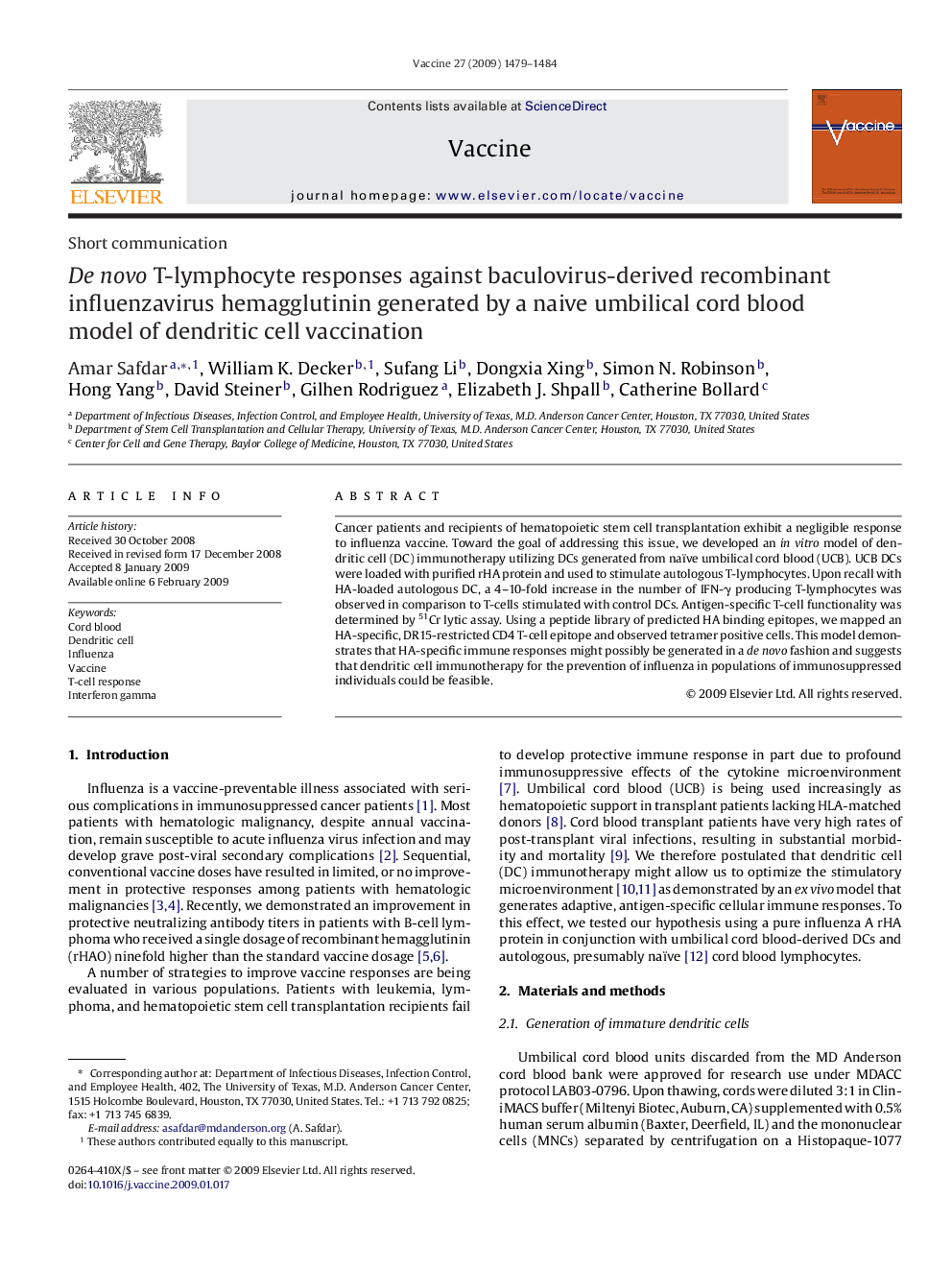| Article ID | Journal | Published Year | Pages | File Type |
|---|---|---|---|---|
| 2407167 | Vaccine | 2009 | 6 Pages |
Cancer patients and recipients of hematopoietic stem cell transplantation exhibit a negligible response to influenza vaccine. Toward the goal of addressing this issue, we developed an in vitro model of dendritic cell (DC) immunotherapy utilizing DCs generated from naïve umbilical cord blood (UCB). UCB DCs were loaded with purified rHA protein and used to stimulate autologous T-lymphocytes. Upon recall with HA-loaded autologous DC, a 4–10-fold increase in the number of IFN-γ producing T-lymphocytes was observed in comparison to T-cells stimulated with control DCs. Antigen-specific T-cell functionality was determined by 51Cr lytic assay. Using a peptide library of predicted HA binding epitopes, we mapped an HA-specific, DR15-restricted CD4 T-cell epitope and observed tetramer positive cells. This model demonstrates that HA-specific immune responses might possibly be generated in a de novo fashion and suggests that dendritic cell immunotherapy for the prevention of influenza in populations of immunosuppressed individuals could be feasible.
